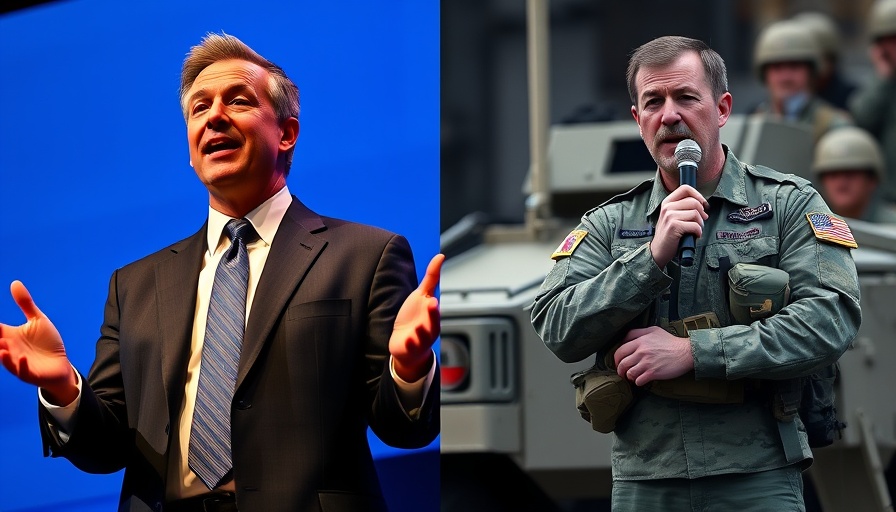
Fear and Politics: The Chicago Crime Dilemma
Former Chicago Police Chief Jody Weis has stirred the political pot by asserting that Democratic leaders are "afraid" a crime crackdown under Donald Trump could actually prove effective in reducing the spiraling crime rates in the city. Weis's comments highlight a significant tension within Chicago's political landscape, particularly as residents grapple with the day-to-day realities of crime in high-risk neighborhoods.
Context of Crime and Political Fear
In a city where gun violence has reached alarming levels, the implications of Weis's remarks are profound. Chicago has consistently faced criticism regarding the effectiveness of its law enforcement strategies. With a rich history of political corruption and inadequate responses to crime, assessing the potential impact of a different leadership style becomes crucial. Weis's perspective introduces a jarring criticism of the Democratic leadership, suggesting that they prioritize political survival over pragmatic solutions to public safety.
A National Lens: What Happens When Politics Meets Crime?
As the discussion of crime intensifies nationally, it becomes crucial to examine the broader implications across major urban centers. Trump’s renewed focus on law and order could resonate with constituents who feel abandoned by local leadership. Furthermore, it raises questions: would a stricter approach to policing, typically favored by Republicans, alleviate urban crime, or could it further alienate communities that rely on reforms?
Current Events and Public Sentiment
Weis’s comments coincide with numerous studies indicating that urban areas governed by heavy policing often do not see reductions in crime rates compared to those that integrate community-based reforms. This is an evolving conversation that reflects deep socio-political dynamics in America, revealing varying opinions on crime prevention and public safety. In polling data, many citizens express frustration over crime rates while grappling with concerns about police reform and community engagement.
Voices from Chicago: What the Residents Think
Chicago locals, faced with daily uncertainty due to crime, often feel caught between political rhetoric and tangible safety issues. In an informal survey, residents highlighted a growing desire for solutions that encompass more than just increased policing. Many advocate for addressing root causes, such as poverty and lack of educational opportunities, instead of merely punitive measures. This sentiment is shared across urban America and underscores a collective struggle for safety amidst complex societal issues.
The Future: Possible Trends and Predictions
As the 2025 elections approach, the contrasting ideologies around crime will shape electoral outcomes. Increased scrutiny on Chicago's leadership could galvanize voters who desire substantial change. Republicans, rallying behind a promise to restore order, may craft narratives that position Democrats as ineffective. However, if crime rates continue to rise, even Democrats may need to consider adopting more assertive measures in their strategies.
Reforming or Reinforcing: The Police Debate
Understanding the implications of Trump's potential crime crackdown offers insights into broader policing strategies across the United States, with many urban areas mirroring Chicago’s concerns. The ongoing debate over police reform versus increased law enforcement presence raises ethical questions and sparks conversations around civil rights. Striking the right balance between safeguarding communities and respecting their rights remains an urgent issue.
Learning for the Future
Ultimately, the discussions surrounding crime in Chicago serve as a microcosm of national conversations already underway. It challenges leaders across party lines to prioritize actionable change, not just political maneuvers. A consensus remains elusive, but residents' cries for safety echo loud and clear.
In conclusion, understanding these developments is vital for anyone concerned about public safety and civic responsibility in their communities. Recognizing the shifts in political strategy and public sentiment is crucial as these factors play a pivotal role in shaping both local and national narratives.
 Add Element
Add Element  Add Row
Add Row 



Write A Comment